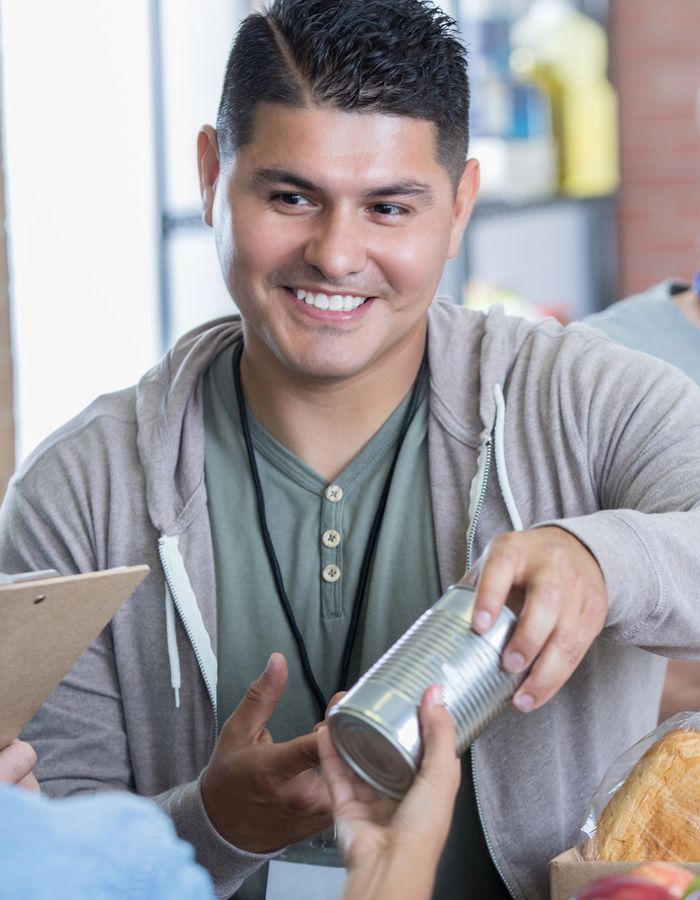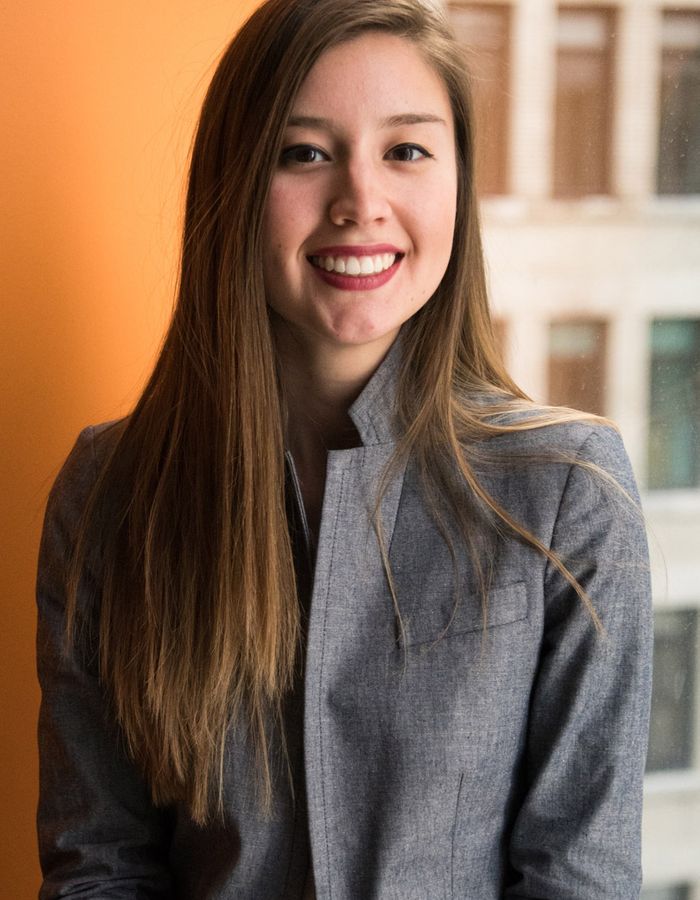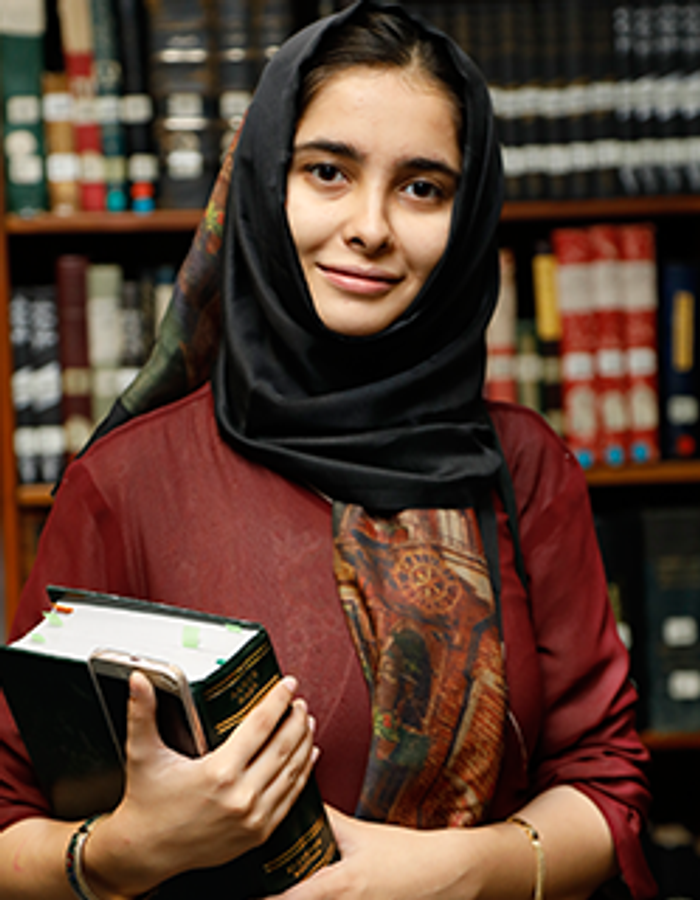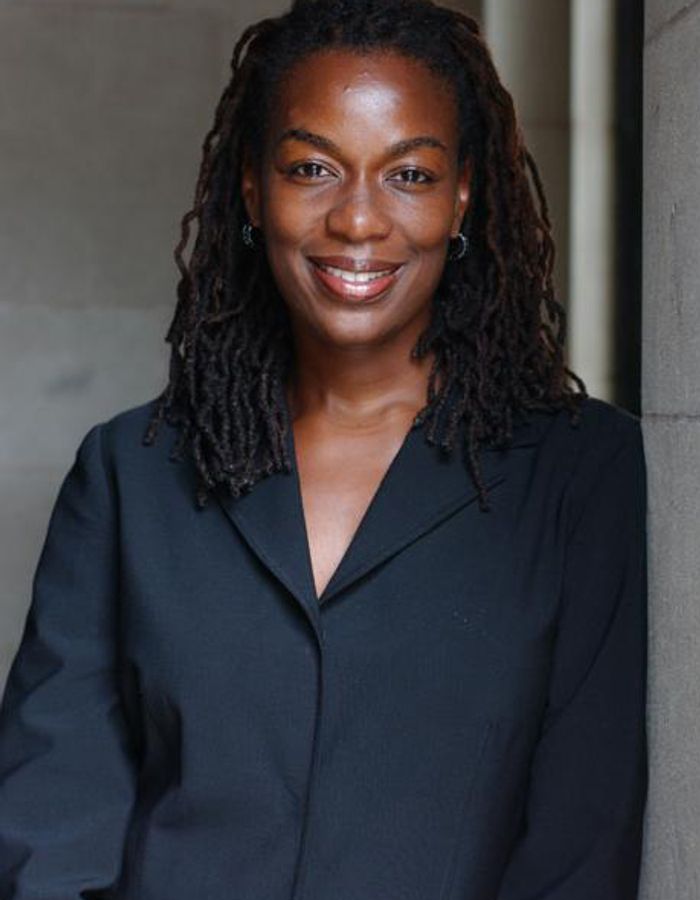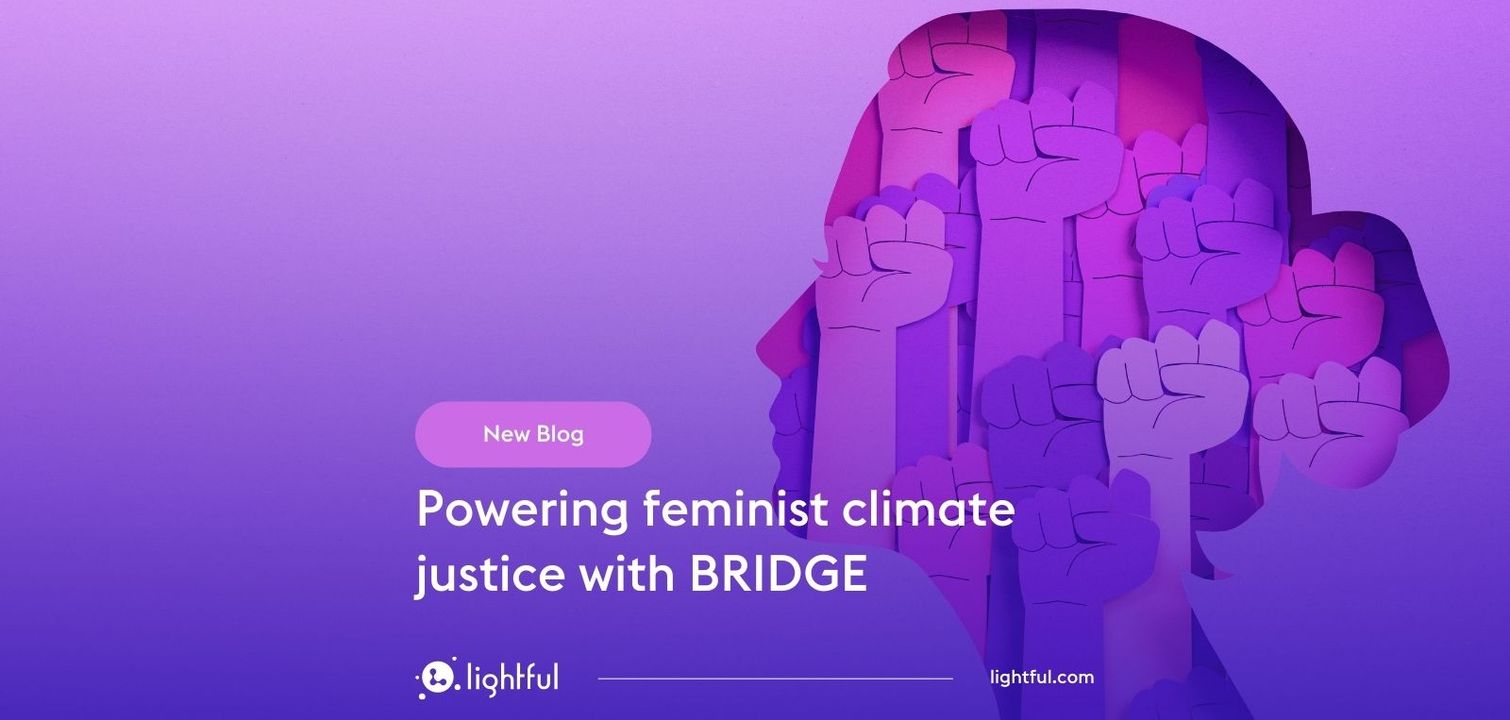
“Women and girls in Africa and the Caribbean are leading climate justice movements, but there aren’t many funders who will give money to young, emerging organisations and movements like these—who might not be formally registered or have long track records of doing this work. That’s why I’m focused on shifting money, power, and other non-financial resources to feminist climate activists so they can build their agency, control their narratives, and scale up their actions. It means meeting groups where they are while providing the resources for them to get to where they need to be to have the greatest impact.” Ayesha Constable, Technical Director for Climate Justice at Global Fund for Women
Women and girls are disproportionately affected by climate change. As the world grapples with environmental degradation, biodiversity loss, and gender inequality, research and the philanthropic community are increasingly highlighting the importance of addressing these challenges through a co-operative, intersectional gender lens.
Lightful’s vision is a future where nonprofits have the power to create more equitable communities and a healthier planet. We know that digital has a vital role to play in achieving this future - having joined Lightful earlier this year from a nonprofit myself, I appreciate how essential these skills are. We are excited to bring all of these elements together to launch a new digital skills programme for grassroots organisations working at the intersection of climate and gender. This opportunity is in collaboration with a group of forward-thinking funders and partners including Global Fund for Women, USAID, Woodcock Foundation, and The Women’s Environment and Development Organization (WEDO).
We believe that an intersectional approach in nonprofit resilience building is essential to empower those closest to climate issues, to shift power to locally-led organisations and to amplify their impact.
Climate justice, gender and intersectionality for grantmakers
The world is currently not on track to achieving the UN 2030 Sustainable Development Goals, including SDG 13 on combatting climate change and SDG 5 on gender equality, but intersectional approaches could provide a path to achieving more impact. The OECD ‘Gender Equality and Environment Intersection’ report, for example, states that “women’s unique knowledge, experiences, ideas and voices are increasingly recognised as being critical for future green-related policy making, programme design, financing allocations and international dialogue”. Despite mounting evidence of the importance of intersectional approaches, shockingly, less than one percent of philanthropic funding focuses on organisations working at the intersection of gender and climate.
Innovative philanthropists, funders and change-makers worldwide are highlighting the huge potential for impact through gender-just climate action and are increasingly using the power of philanthropic partnership to facilitate nonprofits working in this space. For example, ‘Project Dandelion’ is a women-led global campaign for climate justice and one of their demands is to elevate women-led climate solutions. Additionally, The Global Alliance for Green and Gender Action (GAGGA), Global Greengrants Fund (GGF), and The Women’s Environment and Development Organization (WEDO) have launched the ‘Roots Rising’ campaign which aims to mobilise ‘at least $100 million of new funding for gender-just climate action by 2026, and significantly more by 2030’.
The importance of digital skills for nonprofit resilience: what we have learnt so far
Lightful’s mission is to help nonprofits become better storytellers, build trust, and raise more funds. How? By empowering them with digital skills to communicate, fundraise and campaign more strategically. The 2023 Charity Digital Skills Report highlights that the need to upskill staff and volunteers in digital skills is one of the most critical issues facing social impact organisations today.
As a response to this urgent need for digital skills, BRIDGE - Building Resilience in Digital Growth and Engagement - is Lightful's tried-and-tested capacity building learning programme specifically designed to help grassroots, locally-led nonprofits to amplify their impact. Lightful has already supported 3000+ organisations through the programme, for example through our:
- Gender justice cohort: supporting 170 feminist organisations, funded by the Bill & Melinda Gates Foundation in partnership with GlobalGiving.
- Climate cohort: supporting 116 environmental organisations in collaboration with the Environmental Funders Network.
So what have we learnt so far? We asked our Head of Programmes Róisín McGovern, who is well positioned to answer - she is on the board for Dwona Initiative, a previous BRIDGE graduate dedicated to amplifying girls' and women's voices through education, entrepreneurship, and building safe spaces. Róisín highlighted several key points:
- Grassroots organisations, particularly those in the Global South, operate with an intersectional mindset at their core; we need to follow their lead and take an intersectional approach to digital capacity building to ensure we’re listening to and responding to the variety of challenges facing nonprofit professionals, and their wider community.
- Co-creation is essential; gathering feedback from BRIDGE participants allows us to incorporate their voices and their needs into our learning offerings. This contextualisation process recognises nuances across the sector.
- As well as at grassroots level, it’s clear that funders want to adopt an intersectional approach to philanthropy, by providing flexible capital to grantees, reflecting on their role as facilitators rather than actors, and empowering local leaders through capacity building initiatives.
Amplifying feminist climate action by resourcing local movements with Global Fund for Women
Encouraged by these learnings, Lightful is thrilled to launch our first gender and climate intersectional cohort with our partners Global Fund for Women. We are united with Global Fund for Women’s vision for climate justice - “that women, girls, and gender nonconforming people have the power and resources they need to resist capitalist and unjust systems that harm the environment and advance solutions that centre the lived realities and ground-up knowledge of communities most impacted by, and least responsible for, the climate crisis.”
Ayesha Constable, the Technical Director for Climate Justice at Global Fund for Women, shares why this approach is so important - “As a Black Caribbean feminist, I’ve seen firsthand how Black women activists—particularly those from Africa and the Caribbean—have to work so much harder to make our voices heard, while at the same time fighting climate change in our communities. But with access to digital tools and skills training, these activists can expand their advocacy, amplify their messages, and deepen their impact. An intersectional approach means understanding where each group is in their digital journey and tailoring support to meet their needs, so no one is left behind.”
This cohort will consist of 20 organisations, based in Africa and the Caribbean, focusing on climate justice work and advancing the rights of women and girls. This will also be our first 6-month programme with French speaking organisations so Lightful will provide the relevant translation across live sessions, learning materials and digital tools. At the start of the programme, the team will work closely with organisations to understand their challenges, needs and learning gaps, to ensure these are incorporated into the curriculum. All topics covered are reviewed through an intersectional lens and include: storytelling to combat climate anxiety, digital storytelling as a feminist practice, intersectional communications, creating safe spaces online, and combating hate and misinformation online. The cohort will focus digital advocacy around key campaign moments including International Day of the Girl Child.
Our one-on-one coaching, combined with a co-creation approach, ensures that we prioritise the organisations' needs, tailor support to their specific contexts, and maintain sensitivity to diverse groups with nuanced capacity building requirements. The importance of networks in gender and climate work cannot be overstated; as these organisations work through very specific complexities, Lightful’s BRIDGE programme also fosters peer-to-peer learning and collaboration. These nonprofits will not only learn how to make their voices heard and raise awareness through intersectional communication but build a stronger, global community united in amplifying their work.
Future impact
In today's increasingly connected world, enhanced knowledge of digital skills is critical for nonprofit resilience and sustainability. The impact of the BRIDGE programme is tangible; previous participants have, on average, raised 64% more funds, doubled their new online supporters and tripled their online engagement rates. In addition, Lightful’s longitudinal survey indicates that 96% of nonprofits believe the lessons learned from the BRIDGE programme have positively impacted the communities they serve, with 84% utilising the skills gained from the programme at least weekly.
Skills learnt during BRIDGE are crucial because they help to shift power to locally-led organisations and enable them to increase their impact in powerful ways. Global Fund for Women’s movement partners, for example, have incredibly important goals; from protecting victims of abuse in industrial plantation communities, supporting rural and Indigenous groups to thrive, restoring some of the world's most precious environmental habitats to supporting grassroots change-makers to build a better future for people, and the planet.
We are grateful to our funders and partners at USAID, Woodcock Foundation, Global Fund for Women and WEDO, for supporting this gender and climate justice cohort. We eagerly anticipate the results from this cohort; combining the abundance of innovative ideas, skills and expertise of the participants with the intersectional lens and learnings from Lightful’s BRIDGE programme. As I dig more into Lightful's work with these amazing organisations, I am keen to connect with partners working in this space so please feel free to reach out to find out more about our programmes, or with any questions you might have - partnerships@lightful.com.
Latest articles
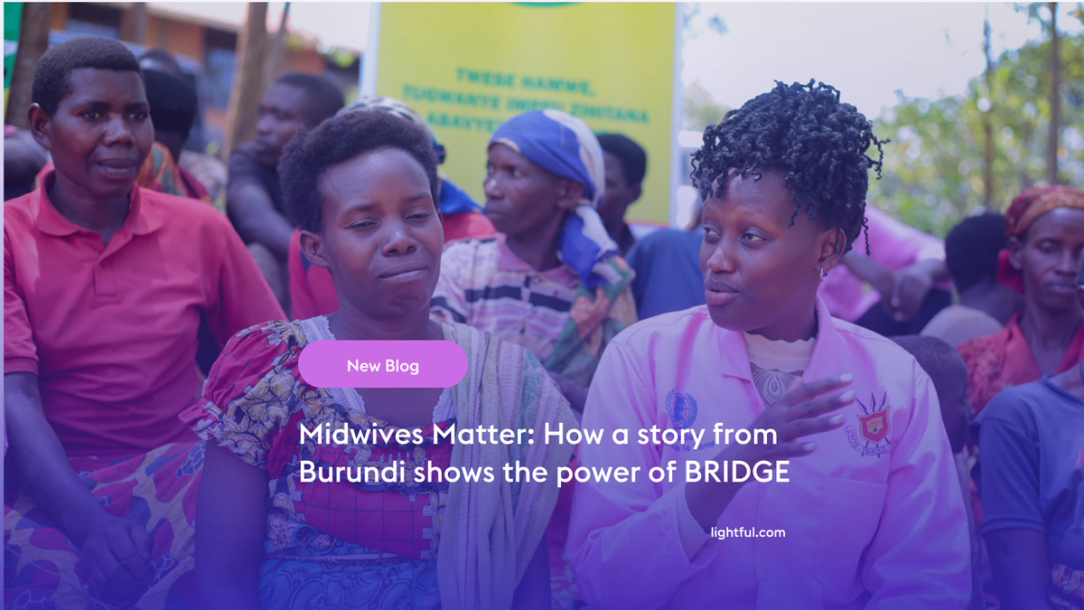
Over the past year, Lightful and the International Confederation of Midwives (ICM) have supported Midwives Associations across Africa, South Asia and the Eastern Mediterranean to build their digital confidence through our BRIDGE programme. These organisations were starting from very different places, but all shared the same goal: to use digital tools to strengthen their voice, raise their visibility and advocate for better outcomes for women and babies.
Related posts
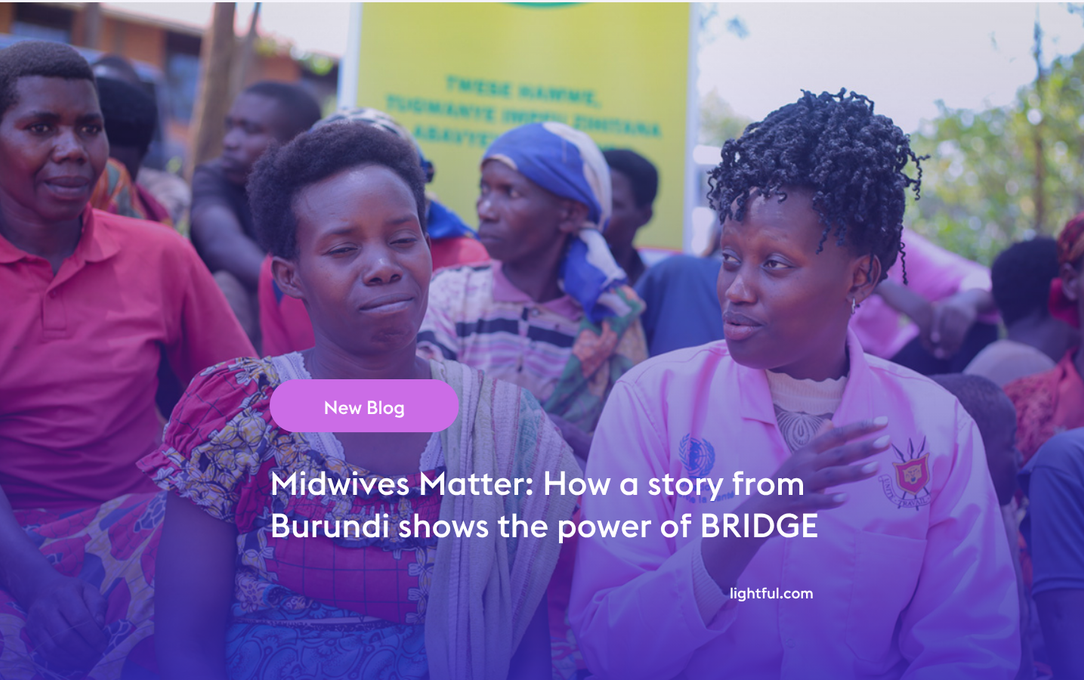
Over the past year, Lightful and the International Confederation of Midwives (ICM) have supported Midwives Associations across Africa, South Asia and the Eastern Mediterranean to build their digital confidence through our BRIDGE programme. These organisations were starting from very different places, but all shared the same goal: to use digital tools to strengthen their voice, raise their visibility and advocate for better outcomes for women and babies.
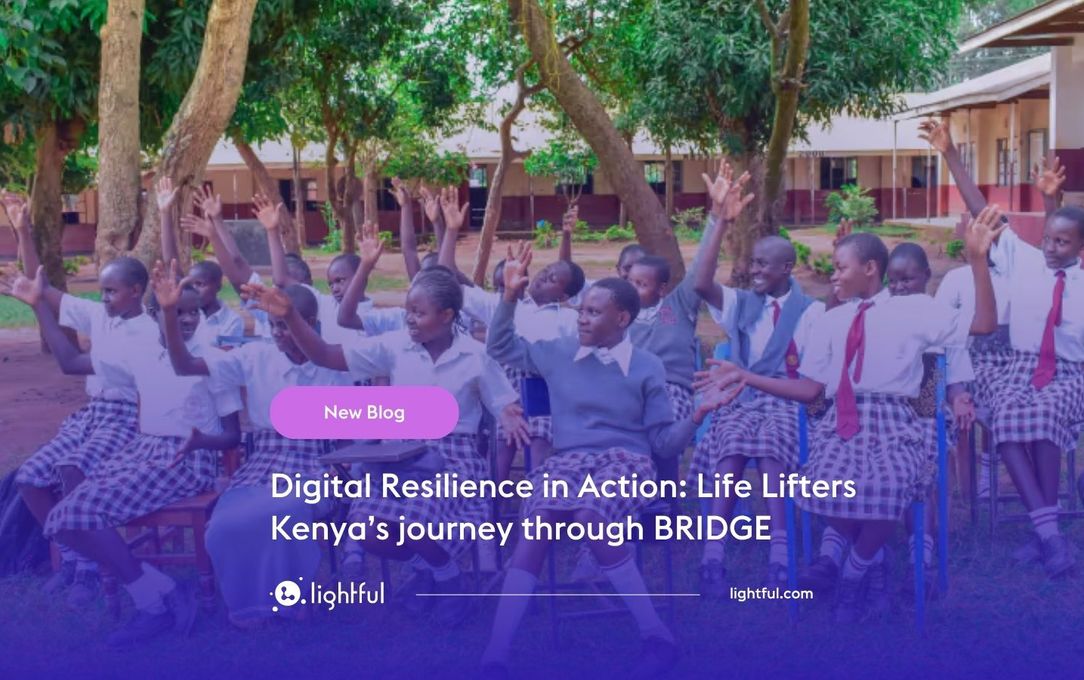
In today’s rapidly evolving digital landscape, the ability to engage online is a necessity. For nonprofits, especially those working in underserved regions or tackling complex social issues, digital tools can be the bridge between intention and impact. Whether it’s reaching new donors, advocating for policy change, or delivering services, digital capacity enables organisations to scale their mission and deepen their impact. Yet many grassroots organisations remain digitally under-resourced. That’s why Lightful created the BRIDGE programme - Building Resilience in Digital Growth and Engagement - to empower nonprofits with the skills, confidence, and strategies to thrive in the digital age and build lasting change.
See who we help
Contact us
Want to learn more?
Email Jonathan and start a conversation



